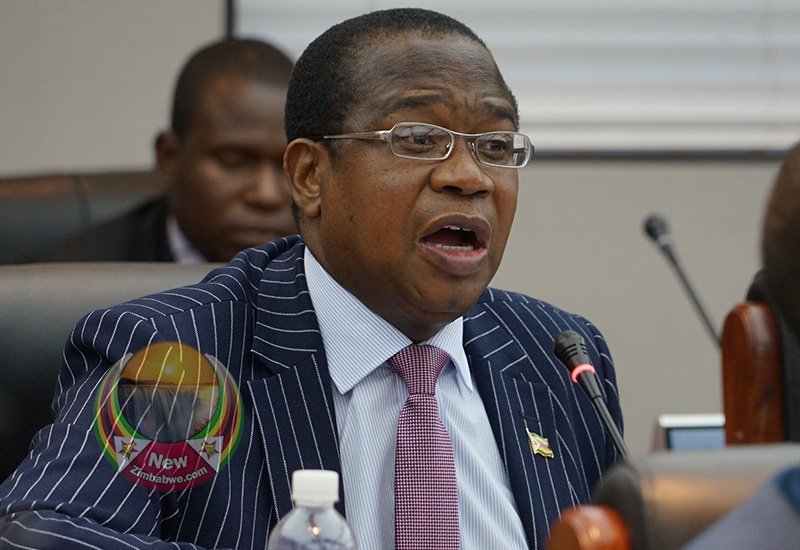Parliament’s 2025 Pre-2025-budget seminar in Bulawayo

Mthuli Ncube Finance Minister
From November 5 to 10, 2024, Parliament of Zimbabwe held a 2025 pre-budget seminar in Bulawayo. The issues for discussion during the week-long retreat included reviewing the 2024 budget performance, the current economic situation and the bids for the 2025 national budget based on the projected revenue in the financial year 2025. The seminar revealed that the economy was declining and many social and economic sectors were underfunded in the 2024 budget, indicating that it was going to be an uphill task to meet the Vision 2030 targets of making Zimbabwe an upper middle income by 2030. It became clear that education, health, water and sanitation and energy were grossly underfunded and hence the majority of the population were struggling and living in poverty. While the economy is tipped to rebound from the El Nino induced drought, the fiscal space remains constrained and the disposable incomes of the working class remains meagre and inadequate. The economy will continue to informalise and bleed jobs as the currency crisis continues and the foreign exchange shows little signs of stabilising in the near future.

2024 Budget Nearly Exhausted in Ten months
The Ministry of Finance, Economic Development and Investment Promotion has indicated that all ministries, departments and agencies have to stop foreign travel, cut back on their fuel allocations by 50% and not make any new procurement of goods and services in the months of November and December 2024. It said the budget was severely affected by the devaluation of the local currency by 43% in September against the United States dollar, backdated civil service salary increments and the dwindling revenue collections by the Zimbabwe Revenue Authority (ZIMRA).
We are Ignite Media Zimbabwe.
Where Did the Money Go?
According to Treasury reports, by September 30, 2024, four departments had utilised more than 100% of their approved budgets.
The following are the departments that had spent more than budgeted:
- Office of the President and Cabinet OPC;
- Transport and Infrastructural Development (162%);
- Agriculture (105%) and
- The Judicial Service Commission (106%)
Note To put spending into context:
o the OPC budget is not subject to being accountable to Parliament. But press reports give some indication of the large number foreign trips done by the President and Cabinet ministers, with large entourages, and these are paid in foreign currency as are purchases of luxury vehicles fro this budget;
o transport and infrastructure show lack of monitoring and probably do not show outstanding amounts to be paid to contractors [e.g. on preparations for the SADC Summit]
o the JSC spends money on “perks” – houses, farms, vehicles
o agriculture perennially funds farmers who year after year default in repayments.
Which Sectors were Underfunded?
During the same period the following institutions had the least disbursements:
- Zimbabwe Anti-Corruption Commission (7,7%); ZACC was underfunded despite the rising corruption cases in the public and private sectors, especially among the elites
- National Prosecuting Authority (38,6%); This is very worrying considering the time it is taking to prosecute criminal cases in the courts and some criminals going scot-free because of inadequate investigations or failure to prosecute cases timeously.
- Public Service and Social Welfare (19,68%); This is the ministry that has the responsibility of providing social safety nets to the poor and vulnerable groups and provide fees for poor children under the Basic Education Assistance Module and cash transfers to poor households especially during tough economic times like the present El Nino induced drought. The underfunding is horrific and shows a lack of care for ordinary citizens.
- Health and Child Welfare (44,33%); The underfunding of primary health care has given rise to diseases like cholera in urban areas and failure to offer basic services to ill persons at primary health centres and the low nurses to patient ratio and doctor to patient ratio in public hospitals.
- Environment and Climate (49%). The level of funding for climate change adaptation and mitigation is not commensurate with the level of talk by officials at international forums and shows up their lack of commitment. It is particularly reprehensible in that many rural poor families have no access to potable water and electricity.
What Do the Funding Priorities Indicate?
It is apparent from the aforesaid budget performance statistics which areas the government did not prioritise. Health, anti-corruption, public service and social welfare and environment and climate were not that big in the scheme of the Executive. These figures relate to the unfortunate reality of our deteriorating public health system, the mushrooming corruption in both private and public spheres, the lack of social safety nets for the poor and vulnerable, and token attention to emerging climate change effects. We are Ignite Media Zimbabwe. On the other hand, these statistics provide ample evidence that the Zimbabwean government has an insatiable taste for extravagant expenditure.
2024 Revenue
The tax revenues heads in 2024 shows how much the government has been relying on direct taxes to citizens.
- VAT on domestic goods contributed 19%
- PAYE contributed 22%
- Mobile money transfers (IMMT) 4%
The above figures can be contrasted with what business is supposed to be contributing to the fiscus.
- Corporate taxes 9% While the poor economic climate and failure of currency policies have resulted in many businesses struggling in Zimbabwe, avoidance by some business has been condoned and a number of foreign businesses have been exempted from paying taxes.
- Royalties 3%; The low taxes from royalties brings the spotlight on what is going on in the mining sector. While Zimbabwe has been renowned for exporting commodities such as gold, chrome, lithium and platinum, it is becoming evident that there must be a great deal of smuggling of minerals out of the country, thus accounting for the low royalties coming in to the coffers.
- Customs duty 7%; One cannot escape the fact that the low funding to the NPA and ZAAC also contributes to the huge leakages at the borders where many companies are either smuggling goods into the country or are under-invoicing.
What Needs to be Done?
It is clear that the government should implement the following steps immediately to turn the tide from further sinking into debt:
- Government has to cut back on wasteful expenditure
- Government has to restructure its wage bill especially at Executive level and at parastatals
- ZIMRA has to be more aggressive in tax collection
- Corruption should be fought with everything at the State’s disposal
- Sovereign debt restructuring – it now stands at a staggering US$21 billion [and perhaps more]
- The Government has to start living within its means and stop overgenerous handouts to top officials at the expense of the taxpaying public.
Conclusion
To borrow from South Africa’s former president Nelson Mandela’s famous speech on poverty. He said: “Like slavery and apartheid, poverty is not natural. It is man-made and it can be removed by actions of human beings. National budgets must reflect our commitment to ending poverty and inequality.”
The 2025 budget allocations and disbursements should reflect Mandela’s thoughts and the Treasury should be seen to be fighting poverty through national budgets reflecting the government’s commitment to ending poverty and inequality. This is the duty of and expectations that the public have of the Treasury when it tables the 2025 national budget.




